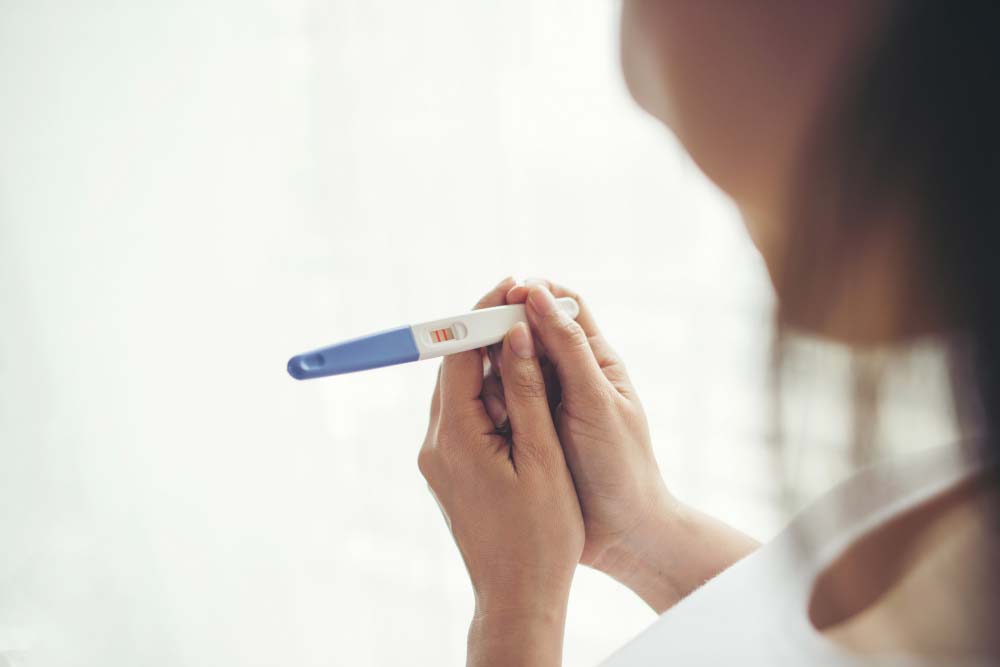One line or Two? A guide to Ovulation and Pregnancy tests

The world of fertility can often be a stressful one to navigate – especially in today’s fast paced lifestyle. Whilst balancing careers and relationships, many women rely on at-home ovulation and pregnancy tests to help guide their fertility. Before using these tests, it is first important to understand the female ovulation/menstrual cycle.
Every month, either one of a woman’s ovaries will release a mature egg (ovum) in the hopes of fertilization with a sperm. This would result in a pregnancy with the development of an embryo. This is known as “ovulation” and it is the time period (usually lasting 24-48 hours) when there is a high chance of getting pregnant. If fertilization does not occur approximately 12-14 days later the unfertilized egg is expelled from the uterus as menstrual blood. If your menstrual cycle is not regular, the time of ovulation may be difficult to predict.
Ovulation test kits
Ovulation home test kits detect the hormone “Luteinizing hormone (LH)” in a urine sample. Ovulation is triggered by a spike in the levels of LH, and hence detection of this rise will predict ovulation. These test strips have a high level of accuracy (>95%) and are useful for couples trying to conceive.
The strip is dipped into a sample of urine and after a few minutes, the strip should be observed for the presence of the “test line” and the “control line” (accurately depicted on the packaging of the kit). If the “test line” is darker than the “control line” this is indicative that ovulation may occur shortly.
As detecting this short window period can be tricky, consistent testing over a number of consecutive days may be required. Most women experience the LH spike in the morning, so testing later on in the day (after noon) would be more accurate. A concentrated sample of urine will enable the hormone level to be more easily detected if present so it is advisable not to drink large amounts of fluid just before testing as this may dilute the sample.
After a positive result, it is recommended to have sexual intercourse on that day and for a few days after to increase chances of getting pregnant as ovulation can occur up to 36 hours after the LH spike.
There are other methods used to predict ovulation known as fertility awareness methods and these include examining cervical mucous viscosity and checking for a slight raise in basal body temperature. However, these tests are user-bias and may not be as accurate as ovulation test kits.
Ovulation home test kits are challenging to find in Sri Lanka, but they can be found at some fertility clinics in Sri Lanka. Newer digital ovulation kits are available in Western countries (albeit pricier) and are more straightforward, simply indicating if ovulating or not.
Pregnancy test kits
Pregnancy at home test kits measure the hormone ß-hCG which is secreted a few days after fertilization. New generation urine pregnancy test kits are very accurate and can be taken on the day of a missed period (some even a day or two before a missed period).
Similar to ovulation test strips, the strip is dipped into a sample of urine and after a few minutes the strip is observed for the presence of the “test line” and the “control line” (accurately depicted on the packaging of the kit). The presence of two lines indicates a positive result and the presence of one line indicates a negative result. A positive result is highly accurate; however, a negative test is not always accurate as the test may have been taken too early or has not been done correctly. Newer digital pregnancy kits are available in Western countries and simply indicate if pregnant or not.
A concentrated sample of urine will have the highest concentration of the hormone, so it is recommended to use the 1st sample of urine upon waking.
Pregnancy tests are very easy to find and are available at most pharmacies island wide. A prescription is not required to purchase a pregnancy test.
Even though these home tests are generally user-friendly, some users may have queries and concerns. It is always recommended to speak to a healthcare worker for further advice on ovulation and pregnancy tests.
You can call the FPA Clinic on 077 955 297
By: Dr. Rashmira Balasuriya
Medical Doctor
Women's Health & SRH Specialist - FPA Sri Lanka
.png)



